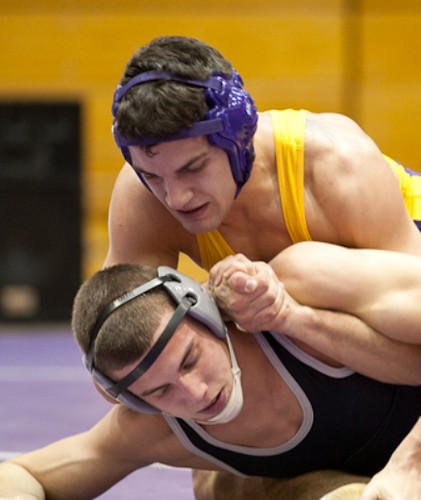"My son wrestled since he was in grade school. Now he is in high school and so burnt out that he didn't even go out for the team."
 Hunter College
Hunter College
"My neighbor plays club basketball year round and is out indefinitely because of stress fractures in her lower legs..."

"All that I've ever played is soccer - now I'm not a starter so I'm going to quit. I think it is too late to start another sport now..."
Have you ever heard statements like these? I am sad to say that I hear them all too often. With the media screaming about the Tiger Woods and Venus and Serena Williams of the world, many habitancy are manufacture the mistake of starting one sport at a young - make that very young - age and specializing in it. The lure of college scholarships has also convinced these habitancy that specialization is the only way to become good at a sport.
Before someone decides to specialize, they should reconsider the dangers complicated in participating in only one sport. Here are 4 Dangers of Specialization:
1. Overuse injuries: stressing the body in the same way over and over again for all or a great part of the year can lead to overuse injuries. Stress fractures, compartment syndrome and other conditions often follow from a lack of diversity in athlete's activities. It is best to challenge your body in separate ways throughout the year to produce as an athlete. separate sports will put separate stressors on your body prominent to best wide athletic performance. Pediatricians across the country have called for children to share in a collection of physical activities.
2. Burn out: Playing one sports day after day, week after week, year after year can lead to burn out at a fairly early age. Children are starting organized sports at younger and younger ages. someone playing hockey starting at the age of four may become tired and bored with the sport by the time they reach middle or high school. Non - specialization provides breaks and other experiences to keep a primary sport interesting, challenging and fun.
3. The College scholarship illusion: As much as parents want their children to receive athletic scholarships, the truth is that a very small division of athletes de facto attain this goal. A scholarship in itself should not be the driving force behind choosing to share in only one sport. A someone should not bank their health, happiness and time to come on the small occasion of a "full ride." The majority of athletes will benefit more from a collection of athletic experiences even if no scholarship offer ever comes. Besides, most college recruiters are seeing for the best all-around athletes. One of their first questions is often: "What else did you do also playing (insert primary sport here)?" There is evidence to retain this. For example, over 75% of the 2004 football recruiting class for the Wisconsin Badgers is listed as playing multiple sports in high school. Also, look at the draft picks each year in the Nfl. The majority of those players did not specialize in one sport during their high school careers. How often have you heard this on draft day: "We are going to draft the best wide athlete that is available..." Playing more than one sport is the best way to produce into that wide athlete.
4. Not achieving your full athletic potential: While focusing on one sport will help you produce the vital sport-specific skills, you will not produce other athletic skills that would transfer to your primary activity. Speed, balance, reasoning focus, jumping, twisting are all stressed differently in separate sports. all you do to become a best athlete will also make you a best (insert sport here) player.
More and more research is showing that early specialization does not ensure athletic success. We hear about the few who do blossom from early specialization but what about the vast majority who don't "make it big" in their chosen sport? How many athletes can you think of that have become successful by not specializing? How about Deion Sanders, Bo Jackson, Jim Thorpe, Babe Didrickson, John Elway, and Marion Jones to name just a few.
Sports should be encouraged from a young age. But, it is best to encourage participation in a collection of athletic activities to produce athletic skills that transfer across all sports. This will lessen the dangers mentioned in this article, lead to young athletes reaching their full athletic inherent and, who knows, maybe bring that coveted college scholarship.
Copyright, Tim Kauppinen, 2005
This report is protected by copyright, 2005, Tim Kauppinen. All rights reserved.
Youth Sports Specialization: Beware These 4 Dangers!
No comments:
Post a Comment